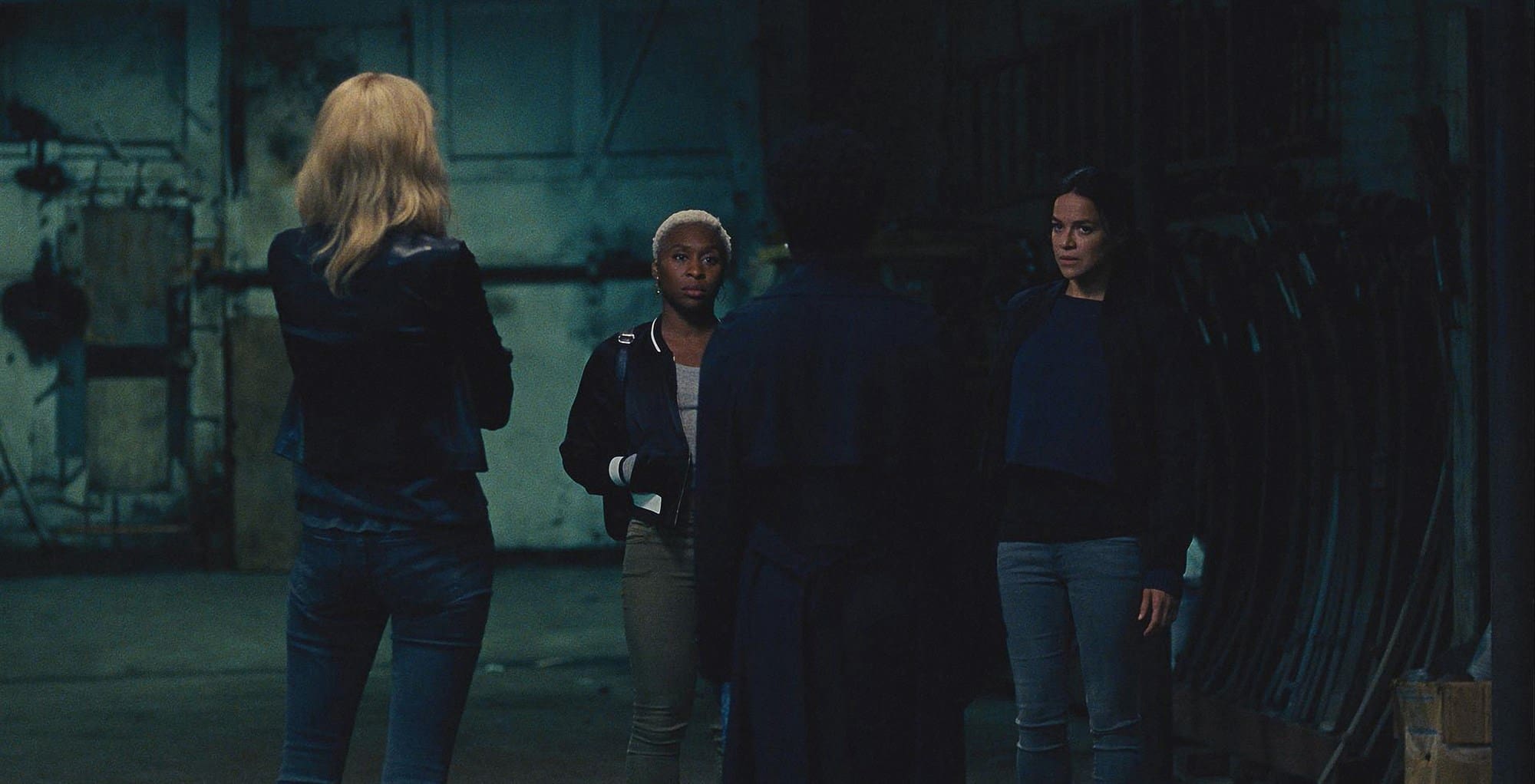
Steve McQueen is the sort of director who never seemed destined for studio filmmaking. His films, including the depressing sex-addiction themed Shame and the Best Picture-winning masterpiece, 12 Years a Slave, are uncompromising, brutal, and explicit to a point that would likely alienate mainstream audiences.
This makes the biggest surprise in Widows — a heist thriller laden with twists — that the film is a digestible crowd-pleaser. McQueen takes his directorial traits and uses them to create a meticulous and suspenseful thriller that feels like a combination of Heat and Set It Up. It’s refreshingly old-school in its execution, but filled with timely social content.
Screenwriter Gillian Flynn’s (Gone Girl, Sharp Objects) fingerprints are all over this film, which is loosely based on a BBC miniseries of the same name. In it, Viola Davis plays Veronica, the wife of a recently deceased career criminal (Liam Neeson) who stole $2 million from a politician with gang ties named Jamal (Brian Tyree Henry). Now, with Jamal breathing down her neck for the money her husband stole, Veronica decides to utilize plans her husband left behind to pull off a heist worth $5 million.
Her crew: the widows of her husband’s partners, including a single mom struggling to keep her store open (Michelle Rodriguez) and a trophy wife turned escort (Elizabeth Debicki). The titular widows are fascinating, complex characters that would feel right at home in one of Flynn’s novels, while each member of the large supporting ensemble is memorable in their own right.
Veronica is a particularly complicated protagonist, and the best screen role Viola Davis has been given since breaking onto the scene almost ten years ago. In some ways, it plays to all her best characteristics as a performer: the trailers and TV spots all hinge around her line, “No one thinks we have the balls to pull this off,” while other scenes find her critiquing her crime-mates for crying or running late.
Fans of the “stern Viola Davis” persona will leave the theater happy, but there is an undercurrent of desperation and pain in all of her scenes—particularly when she’s alone. As Flynn unfolds Veronica’s tragic backstory, and reveals her true intentions in pulling off the heist, Davis creates an emotional through-line for what could have been a cold, calculated thriller. The emotional bursts are short, yes, but Davis makes them all land.
But Widows is one of those films where virtually every character with a speaking role is played by a recognizable face. Elizabeth Debicki is the closest the film has to a co-lead, and she kills every one of her scenes in the sort of scene-stealing turn that should push her into the echelon of A-list stars. Cynthia Erivo, meanwhile, continues her great year onscreen as someone the widows recruit to help with the job. This is a quiet, intensely physical performance that Erivo totally sells.
And then there are the villains. Henry is intimidating whenever he’s on screen, but its Daniel Kaluuya who emerges as the more memorable antagonist. He’s terrifying whenever he’s onscreen, with Kaluuya’s physical choices and cold stare selling what could have been cartoonish in another performer’s hands.
Elsewhere, Robert Duvall and Colin Farrell play a father-and-son political duo who only care about the more gentrified sections of their district. Both actors are appropriately smarmy, but feel like real politicians (thankfully, they don’t just riff off Trump in their performances).
But we’re not done yet: Liam Neeson sheds his Taken persona in a solid supporting turn. Jacki Weaver creates a dimensional character with less than five minutes of screen time; Jon Berenthal does the same in one. Garret Dillahunt (TV’s Raising Hope) has a few wonderful scenes as Veronica’s chauffeur. Lukas Haas of Witness and, most notably, The Pussy Posse, plays one of the most interesting dirtbags onscreen this year. The only performer who doesn’t quite hit a home run here is Michelle Rodriguez, who can’t quite sell her dramatic moments. But, in the physically demanding scenes, she’s almost unmatched.
The real star here, though, is Flynn’s screenplay. While her novels are also meticulously detailed, the screenplay for Widows is an absolute juggling act. There are so many subplots, story threads, and seemingly random character details that feel unconnected until the final act, where they come together beautifully. While the story is never confusing, it throws a lot of information at you at once.
Flynn makes sure to reward attentive viewers with a thought-out screenplay that’s supremely entertaining and well paced. She also peppers the film with many major social issues that set it firmly in 2018: police brutality, race relations, corruption in politics, and sexual harassment all play key parts in the story without ever becoming a “message movie,” so to speak. Flynn simply understands that it’s almost impossible to separate the personal from the political and decides to write her movie around that universal truth.
In many ways, Widows serves as a message to art house filmmakers: it’s possible to create a commercial movie without compromising your artistic vision. While not quite as powerful as 12 Years a Slave, and not as contemplative as Shame thinks it is, Widows is a rarity in Hollywood circa 2018. A popcorn thriller with a stacked cast, smart screenplay, auteurial direction, and political overtones? Now that’s something to be thankful for this month.
Rating: 9/10
Widows is currently playing in theaters nationwide.


Comments are closed.